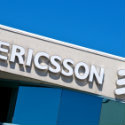
Ericsson is cutting hundreds of jobs in China after losing market share during the recent awards of 5G contracts, Light Reading has learned.
The cuts at the Swedish equipment vendor's Chinese business will affect only staff working in local-market sales and delivery functions, with several hundred jobs understood to be at risk out of a total China workforce of about 10,000 employees.
Layoffs will happen by the end of this year as Ericsson merges three separate customer units in China into one. Until now, it has maintained a unit for each of China's big mobile operators – China Mobile, China Telecom and China Unicom – but the restructuring will create a single mainland China customer unit catering to them all.
Figure 1:  Ericsson CEO Börje Ekholm is dealing with a loss of market share in China.
Ericsson CEO Börje Ekholm is dealing with a loss of market share in China.
Ericsson's recent loss of market share has left it with a lower volume of 5G business to serve. Its move is aimed at rebalancing sales and costs so that it remains competitive on price.
Employees in China were briefed on the plans at an internal company meeting earlier today, where Chris Houghton, Ericsson's head of market area for northeast Asia, said: "I sincerely regret that we now need to make changes to our great team, in order to reflect Ericsson's changing market share position in China. We are committed to China and delivering value to our customers with our leading technology and solutions."
Phased out
The restructuring comes weeks after China Mobile gave Ericsson just 2% of the 700MHz bid on top of its existing share in 2.6GHz. This phase-two allocation in 5G is down from about 11% last year.
Ericsson has also picked up only a 3% share of the phase-two 5G work for China Telecom and China Unicom, which have joined forces to build a 5G network.
China's phase one covered the rollout of about 700,000 5G basestations last year and was largely about installing more advanced equipment in provincial capitals. In phase two, operators are using lower-band frequencies to serve less densely populated areas.
Analyst firm CCS Insight reckons the total number of 5G basestations in China will hit 1.7 million by the end of this year.
The contract awards mean Ericsson's overall 5G market share in China has dropped from about 10% on phase one to just 3% on phase two.
The setbacks with the state-controlled operators have been interpreted as a Chinese government response to the 5G ban that Sweden imposed last year on Huawei and ZTE, two Chinese equipment vendors.
The Swedish regulator said operators collecting new 5G spectrum licenses would not be allowed to use products supplied by either Huawei or ZTE.
Ericsson has already been hurt by a decline in China business this year. Sales were reported to have dropped by 60% or about $390 million for the recent second quarter, compared with the year-earlier period.
Want to know more about 5G? Check out our dedicated 5G content channel here on Light Reading.
Speaking shortly after those results were published, Ericsson CEO Börje Ekholm said that "a material loss in market share in China would lead to a delay in reaching targets" at its unprofitable digital services unit. Ericsson also wrote off about $46.4 million related to pre-commercial product development for China.
News of the China restructuring follows Ericsson's divestment of a research-and-development asset in Nanjing employing about 650 people.
The transfer of that asset to TietoEVRY, a longstanding Ericsson partner, was unrelated to 5G setbacks, said Ericsson earlier this month. Rather, it was about reducing investments in older technologies, with the Nanjing facility heavily focused on 2G, 3G and 4G R&D.
At this stage, Ericsson does not appear to have any plans for job cuts or restructuring in China outside the sales and delivery functions.
Those functions are especially vulnerable to fluctuations in market share and Ericsson has previously cut sales and delivery jobs in other countries to reflect its changing fortunes.
Nor is the establishment of a customer unit catering to several clients unique. While Ericsson maintains dedicated units for major clients such as Verizon, it already has other units that serve multiple customers.
Approached for a comment, an Ericsson spokesperson said: "This is the result of a change in market share that would apply in any Ericsson market. Our customers expect us to deliver high-performance products and competitive prices. We maintain our edge by operating according to the needs of customers in more than 180 markets worldwide."
Back in the black
Despite its recent difficulties in China, Ericsson has been thriving in other parts of the world as Dell'Oro Group, a market research firm, forecasts 10% growth in the global market for radio access network products this year.
It reported sales of 54.9 billion Swedish kronor ($6.3 billion) for the second quarter, up 8% year-on-year in constant-currency terms, and its net income soared 51%, to SEK3.9 billion ($450 million).
Profitability has recovered and improved under Ekholm, who sold underperforming assets, cut jobs and doubled down on the fledgling 5G business after taking charge in 2017.
Overall headcount fell from about 114,000 in late 2016 to less than 96,000 three years later, although it has recently grown to more than 101,000 thanks to takeover activity, including the acquisitions of Kathrein, a German antenna business, and Cradlepoint, a US company that sells edge routers and related servers to enterprise clients.
Ericsson's spending on R&D has risen markedly during Ekholm's tenure, up from SEK31.6 billion ($3.6 billion) in 2016 to SEK39.7 billion ($4.5 billion) last year. Analysts have attributed Ericsson's product competitiveness to that increase and say it has also buoyed profitability.
Related posts:
— Iain Morris, International Editor, Light Reading
About the Author(s)
You May Also Like











